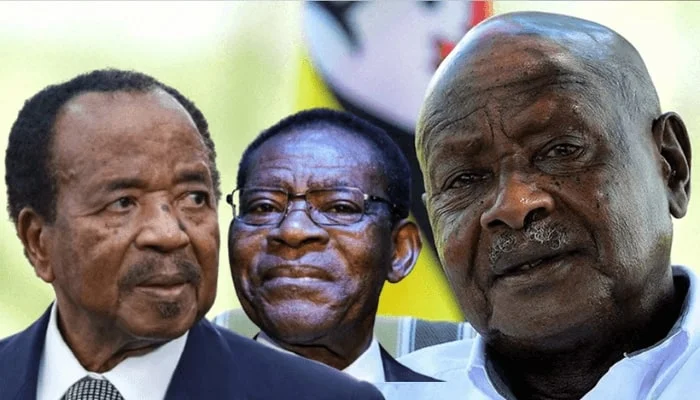In West Africa, two veteran presidents have clinched fresh mandates, intensifying scrutiny over the stark age disparity between rulers and ruled.
With Africa’s average citizen under 20, the 80s and 90s of Paul Biya (Cameroon) and Alassane Ouattara (Ivory Coast) highlight a troubling mismatch.
Biya’s 53.66% victory on October 12 marked his eighth term, extending 43 years in power since 1982. Challenger Issa Tchiroma Bakary disputed the outcome, claiming 54.8% based on unofficial counts and alleging manipulation.
Protests erupted in Douala and Garoua, with security forces clashing against demonstrators demanding transparency.
Ouattara’s 89.77% landslide followed a similarly contested poll on October 25. Prominent foes, including ex-leader Laurent Gbagbo, were sidelined by disqualifications. Low turnout and cries of a “staged affair” echoed from young voters feeling sidelined.
The Numbers Reveal the Chasm
Cameroon’s population skews young median age 18, while Ivory Coast’s hovers at 19. Yet Biya (92) and Ouattara (83) dominate decisions for generations born decades later.
This 60-year-plus gap breeds resentment, as policies often overlook millennial and Gen Z priorities like jobs, tech access, and climate resilience.
Online, youth voice exasperation through viral clips and posts. Hashtags such as #OldGuardsOut trend, with memes mocking “grandpa rulers” and calls for age caps.
In Cameroon, students in Yaoundé rallied for audits; in Ivory Coast, Abidjan youth forums debated boycotts.
Sample sentiments:
- “Handing fate to someone who won’t see tomorrow’s dawn?”
- “Time for term limits eighth go at 92? Absurd.”
- “Africa clings to fossils while the world evolves.”
- “Who votes for relics? Fraud or fear?”
These digital outcries mirror street actions, blending humor with urgency.
Global Echoes, African Extremes
Aging at the helm isn’t uniquely African China’s Xi Jinping (71) and Russia’s Vladimir Putin (72) entrench power. Even in democracies, U.S. debates over Joe Biden’s fitness (81) swayed opinions.
But Africa’s youth bulge 60% under 25, amplifies the stakes. Limited opposition and constitutional tweaks enable longevity, stifling renewal.
Factors Sustaining Senior Statesmen
Why do elders endure?
- Institutional Grip: Parties control vote oversight, forces, and broadcasts.
- Legal Maneuvers: Amendments and interpretations extend stays.
- Stability Narrative: Backers claim continuity averts chaos in volatile histories.
- Rival Suppression: Disqualifications and weak alternatives skew fields.
This machinery ensures wins, but at democracy’s expense.
Youth-Led Pushback
Frustration manifests in digital activism and sporadic rallies. Platforms like TikTok host “youth manifestos” demanding quotas for under-40 candidates. Diaspora networks fund campaigns, amplifying calls for age/term limits.
Yet challenges persist: crackdowns on protests, media censorship, and economic woes divert energy. Still, movements like Cameroon’s #BiyaMustGo signal a tide turning.
Horizons for Change
As Africa’s youth swell to 1 billion by 2050, pressure mounts. Biya and Ouattara symbolize systems favoring incumbents over innovation.
Will reforms youth quotas, independent commissions emerge, or entrenchment prevail?
The coming decade hinges on this. Young Africans, tech-savvy and connected, may force evolution. From ballots to boycotts, their resolve could redefine governance.
Should Africa cap leader ages? Comment below!






